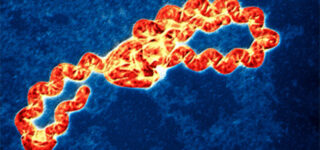Luiz Fernando Ferreira, whose full name was Luiz Fernando Rocha Ferreira da Silva, was born in Rio de Janeiro on September 23, 1936. He died on August 23, 2018, after 82 years of a prolific life dedicated to teaching and research in Parasitology, and full of achievements. He worked for more than 50 years at Fiocruz, an institution he loved and attended daily until he was hospitalized for treatment about 15 days before his death.
Luiz Fernando graduated from the medical school of the University of Brazil (now Federal University of Rio de Janeiro) in 1960. In 1962, at the same school, under the guidance of Professor José Rodrigues da Silva, he defended his doctoral thesis titled, “Experimental Human Isosporiasis” which in the same year received the Gunning Prize.
Luiz Fernando became a full professor at the National School of Public Health Foundation of Fiocruz (currently called the National School of Public Health Sérgio Arouca) in 1966. He was responsible for the formation of the Department of Biological Sciences in that institution and created the, “Initiation Course on Research in Biology,” which was the foundation of the post-graduation in Parasitology, instituted later. Numerous students who attended this course that I had the privilege of attending in 1971, and the postgraduate course that replaced it, became prominent parasitologists such as Ana Maria Jansen and Adauto José Gonçalves de Araújo.
Alongside a brilliant scientific career, Luiz Fernando also dedicated himself to teaching and research administration. He was the deputy director and director of the National School of Public Health, Fiocruz’s vice president of human resources and teaching, and later, between January and June of 1990, he presided over this institution. He was the idealizer of the technical course targeting young residents of Fiocruz’s neighboring communities which led to the establishment of Joaquim Venâncio Polytechnic, responsible for offering opportunities for intellectual growth to this part of the population of Rio de Janeiro. In 2004, he was a researcher-emeritus graduate from Fiocruz, a title that he was very proud of. The following year he was inducted as an honorary member of the National Academy of Medicine, whose weekly meetings he always attended.
Luiz Fernando was a founding member of the Brazilian Society of Tropical Medicine and in 1975, he participated in the group that re-created the Brazilian Society of Parasitology, which had been suspended since the civil-military coup that took place in our country in 1964 and which persecuted scientists and, in particular, parasitologists. He was an honorary member of both societies and was also president of the Brazilian Society of Parasitology.
Luiz Fernando became a great story teller, recalling passages from the lives and careers of distinguished researchers of Fiocruz, or Manguinhos, as the institution was known in the early days. He wrote several books in which he recounted picturesque passages from this heroic age of Manguinhos and his own life1. He recounted memories he considered to be “true and some not so true” in which he showed his passion for knowledge and research, and his love for the institution to which he dedicated his life.
The scientific career of Luiz Fernando Ferreira, who from the beginning seemed promising, became nationally and internationally recognized following his initiative to create the Group of Paleoparasitology of Fiocruz which collaborated with Adauto José Gonçalves de Araújo from its early days.
This group of researchers, led by Luiz Fernando, had a large number of their articles published in high impact journals, as a result of the investigations carried out in the Paleoparasitology Laboratory of Fiocruz and collaboration with researchers from several countries, especially Karl Jan Reinhard, Françoise Bouquet, Katharina Dittmar de la Cruz and Martín Horácio Fugassa from the University of Nebraska, University of Reims, New York University and Mar del Plata University respectively. The book “Fundamentals of Paleoparasitology,” organized by Luiz Fernando Ferreira, Karl Jan Reinhard and Adauto Araújo, winner of the Jabuti Prize in the Natural Sciences category in 2012, is an unequivocal testimony of the contribution of the group headed by Luiz Fernando to the knowledge of the origins and antiquity of the infections of parasitic diseases.
The early death of Adauto Araújo which occurred about two years ago and the death of Luiz Fernando are a significant loss for the group of researchers in Paleoparasitology of Fiocruz. However, I am sure that the group of young researchers formed by the initiative, unconditional support, and daily work of Luiz Fernando, will find a way to honor and continue the work initiated by its master and founder.




